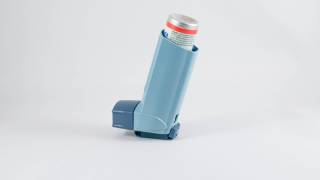Wall Street Is Betting on a Future RSV Vaccine Approval

Currently, there is not an approved vaccine to prevent Respiratory Syncytial Virus (RSV), which is the most common cause of bronchiolitis and pneumonia in children younger than 1 year of age.
RSV is also a significant cause of respiratory illness in older adults, says the Centers for Disease Control and Prevention (CDC).
However, for the first time in decades, numerous vaccine candidates are in the pipeline, and Wall Street analysts believe 1 product may soon cross the finish line.
The shares of Novavax, Inc. has been pegged with a ‘Buy’ rating by Ladenburg Thalmann in its latest research published on December 18th, 2018, reported Fin Mercury.
Previously, Oppenheimer advised investors of potential positive research on NovaVax’s ResVax, on December 11th, 2018. As did Piper Jaffray when it published a report on November 26th, 2018.
ResVax is currently in Phase 3 study named PREPARE.
Stanley C. Erck, President and Chief Executive Officer of Novavax, Inc., said in its 8k filing, “In PREPARE, our Phase 3 trial of ResVax, we will complete monitoring of the efficacy endpoints by year-end, which would allow us to announce top-line efficacy results in the first quarter of 2019.”
And, ‘assuming successful results, expect to submit the Biologics License Application (BLA) and Marketing Authorization Application (MAA) by the first quarter of 2020.’
"We feel confident that final efficacy could also surpass 40%," Ladenburg Thalmann analyst Michael Higgins reported to Stockhouse.com
Most people who get an RSV infection will have mild illness and will recover in a week or two.
Some people, however, are more likely to develop severe RSV infection and may need to be hospitalized.
RSV can also cause more severe infections such as bronchiolitis, an inflammation of the small airways in the lung, and pneumonia, an infection of the lungs. It is the most common cause of bronchiolitis and pneumonia in children younger than 1 year of age.
And, according to a recent study, infants who contract severe respiratory syncytial viral (RSV) disease after the age of 6 months are twice as likely to develop severe asthma in later years.
RSV can also make chronic health problems worse.
For example, people with asthma may experience asthma attacks as a result of RSV infection, and people with congestive heart failure may experience more severe symptoms triggered by RSV.
Recent RSV new articles:
- Skin Vaccination Using Microneedle Patch May Protect Against Respiratory Syncytial Virus
- RSV Vaccine Clinical Trial Launched by Cincinnati Children’s Hospital
- RSV Vaccine Candidate Intends to Increase Neutralizing Antibody Levels in Pregnant Women
If you have additional RSV questions, please visit this CDC page.
Our Trust Standards: Medical Advisory Committee







